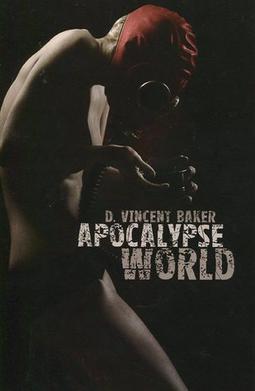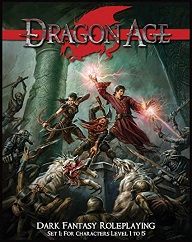Related Research Articles

GNS theory is an informal field of study developed by Ron Edwards which attempts to create a unified theory of how role-playing games work. Focused on player behavior, in GNS theory participants in role-playing games organize their interactions around three categories of engagement: Gamism, Narrativism and Simulation.
The metaplot is the overarching storyline that binds together events in the official continuity of a published role-playing game campaign setting, also defined as an "evolving history of a given fictional universe". Major official story events that change the world, or simply move important non-player characters from one place to another, are part of the metaplot for a game. Metaplot information is usually included within gaming products such as rule books and modules as they are released. Major events in the metaplot are often used to explain changes in the rules in between versions of the games, as was the case with the Time of Judgment in White Wolf's World of Darkness and the Time of Troubles and the Sundering for TSR's/Wizards of the Coast's Forgotten Realms. Because of events like this, many gaming groups choose to ignore the metaplot for a game entirely.

Fate is a generic role-playing game system based on the Fudge gaming system. It has no fixed setting, traits, or genre and is customizable. It is designed to offer minimal obstruction to role-playing by assuming players want to make fewer dice rolls.

Ronald Edwards is a game designer involved in the indie role-playing game (RPG) community, and a game theorist. He created the Sorcerer role-playing game, the GNS theory of gameplay, and The Big Model. Edwards is also co-founder of The Forge, an online community to support indie RPG design and publication.

Role-playing games (RPGs) have developed specialized terminology. This includes both terminology used within RPGs to describe in-game concepts and terminology used to describe RPGs. Role-playing games also have specialized slang and jargon associated with them.

A role-playing game system, is a set of game mechanics rules used in a tabletop role-playing game (TTRPG) to determine the outcome of a character's in-game actions.

An indie role-playing game is a role-playing game published outside traditional, "mainstream" means. Varying definitions require that commercial, design, or conceptual elements of the game stay under the control of the creator, or that the game should just be produced outside a corporate environment. Indie role-playing game designers participate in several development communities and game distribution networks. Indie games also grant their own awards committees.

A role-playing game theory is the ludology of role-playing games (RPGs); a study of the topic as a social or artistic phenomenon. RPG theories seek to understand what role-playing games are, how they function, and how the gaming process can be refined in order to improve the experience and produce more useful game products.
The Escapist is a web resource site that advocates and supports role-playing games (RPGs) as a social and educational activity, and works to educate the public on the true nature of gaming and dispel myths and misunderstandings about the hobby. It is one of a handful of sites that promote RPGs as an activity rather than advocating or supporting any specific game systems.
Evil Hat Productions is a company that produces role-playing games and other tabletop games. They are best known for the free indie RPG system Fate, Blades in the Dark, and Thirsty Sword Lesbians, all of which have won multiple awards.

A tabletop role-playing game, also known as a pen-and-paper role-playing game, is a classification for a role-playing game (RPG) in which the participants describe their characters' actions through speech, and sometimes movements. Participants determine the actions of their characters based on their characterization, and the actions succeed or fail according to a set formal system of rules and guidelines, usually containing Dice-Rolling. Within the rules, players have the freedom to improvise; their choices shape the direction and outcome of the game.
David Vincent Baker is a designer and theorist of tabletop role-playing games and the owner of indie role-playing games publisher Lumpley Games, which also hosts the archives of The Forge. He and his wife Meguey Baker designed Apocalypse World, the first game in the Powered by the Apocalypse system. Apocalypse World won Game of the Year, Best Support, and Most Innovative game at the 2010 Indie RPG Awards, and was 2011 RPG of the Year at both the Golden Geek Awards and Lucca Comics & Games. Baker also designed Dogs in the Vineyard, which won the 2004 Indie RPG Game of the Year and Innovation Award and was one of three games shortlisted for the 2004 Diana Jones Award.

Apocalypse World is a post-apocalyptic roleplaying game by D. Vincent Baker and Meguey Baker, published in 2010 with only an implied setting that is fleshed out by the players in the course of character creation. It was the game for which the Powered by the Apocalypse engine was developed. On release, Apocalypse World won the 2010 Indie RPG Award and 2011 Golden Geek RPG of the year.

Powered by the Apocalypse (PbtA) is a tabletop role playing game design framework developed by Meguey Baker and Vincent Baker for the 2010 game Apocalypse World and later adapted for hundreds of other RPGs.
Meguey Baker is a tabletop role-playing game designer, independent publisher and quilt historian. She and her husband Vincent Baker designed Apocalypse World, the first game in the Powered by the Apocalypse system.

Breaking the Ice is an indie role-playing game by Emily Care Boss. It's a game for two players where the player characters go on three dates together to see if they will become a couple.

Dragon Age is a role-playing game published by Green Ronin Publishing in 2010. It is based on the Dragon Age video game series by BioWare, and uses the video game series' setting.

Roll20 is a website consisting of a set of tools for playing tabletop role-playing games, also referred to as a virtual tabletop, which can be used as an aid to playing in person or remotely online. The site was launched in 2012 after a successful Kickstarter campaign. The platform's goal is to provide an authentic tabletop experience that does not try to turn the game into a video game, but instead aids the game master in providing immersive tools online. The blank slate nature of the platform makes integrating a multitude of tabletop role-playing games possible.
The Cortex System is a collection of related roleplaying games. Its most recent iteration, Cortex Prime, was designed by Cam Banks and published by Fandom Tabletop. Prior versions appeared in the licensed roleplaying games published by Margaret Weis Productions, where it was used as the house system. Cortex is an adaptable game system focusing on characterization and story development.
Avatar Legends: The Roleplaying Game is a fantasy tabletop role-playing game produced by Magpie Games. It is set in the world of the animated television series Avatar: The Last Airbender and The Legend of Korra, and takes place in five different time periods. It sees players take the roles of martial artists, technological experts, or benders – people who can manipulate one of the four classical elements – who fight for balance in the world while also working towards their own goals and struggling with inner balance, represented by opposing ideals held by a character.
References
- ↑ Donohue, Steve (April 17, 2019). "Interview with an RPG Professional: Ed Healy" . Retrieved February 15, 2024.
- 1 2 3 4 5 6 7 Shannon Appelcline (2011). Designers & Dragons. Mongoose Publishing. ISBN 978-1-907702-58-7.
- 1 2 3 4 5 Sailor, Craig (2016-09-17). "Abjuring screens, Gamerati fight on with dice, cards and boards". The News Tribune . Archived from the original on 2024-02-16. Retrieved 2024-02-16.
- ↑ White, William J. (2020). Tabletop RPG Design in Theory and Practice at the Forge, 2001–2012. Cham: Palgrave Macmillan. pp. 34. doi:10.1007/978-3-030-52819-5_2. ISBN 978-3-030-52818-8 . Retrieved 2024-02-16– via Google Books.
- ↑ White, William J. (2020). Tabletop RPG Design in Theory and Practice at the Forge, 2001–2012. Cham: Palgrave Macmillan. pp. 21. doi:10.1007/978-3-030-52819-5_2. ISBN 978-3-030-52818-8 . Retrieved 2024-02-16– via Google Books.
- ↑ White, William J. (2020). Tabletop RPG Design in Theory and Practice at the Forge, 2001–2012. Cham: Palgrave Macmillan. pp. 35. doi:10.1007/978-3-030-52819-5_2. ISBN 978-3-030-52818-8 . Retrieved 2024-02-16– via Google Books.
- ↑ Snow, Cason (2008-04-18). "Dragons in the stacks: an introduction to role-playing games and their value to libraries". Collection Building. Vol. 27, no. 2. Emerald Group Publishing. p. 65. doi:10.1108/01604950810870218. ISSN 0160-4953.
- ↑ Torres-Roman, Steven A.; Snow, Cason E. Dragons in the Stacks: A Teen Librarian's Guide to Tabletop Role-Playing. Santa Barbara, California: Libraries Unlimited. ISBN 978-1-61069-261-8 . Retrieved 2024-02-16– via Google Books.
- ↑ Torner, Evan (2018). "RPG Theorizing by Designers and Players". In Zagal, José P.; Sebastian, Deterding (eds.). Role-Playing Game Studies: Transmedia Foundations. New York: Routledge. doi:10.4324/9781315637532-10. ISBN 978-1-315-63753-2 . Retrieved 2024-02-16– via Google Books.
- ↑ Torner, Evan (2021). "Actual Play Reports: Forge Theory and the Forums". In Jones, Shelly (ed.). Watch Us Roll: Essays on Actual Play and Performance in Tabletop Role-Playing Games. Jefferson, North Carolina: McFarland & Company. p. 25. ISBN 978-1-4766-7762-0 . Retrieved 2024-02-16– via Google Books.
- ↑ Cooper, Kathleen (2016-10-20). "Appeal of board games takes off among South Sound retailers, local gamers". The News Tribune . Archived from the original on 2024-02-16. Retrieved 2024-02-16.
- ↑ Baichtal, John (2008-07-03). "GeekDads' Favorite Podcasts". Wired . Archived from the original on 2024-02-16. Retrieved 2024-02-16.
- ↑ "Ed Healy - Gamerati". Gamerati. Archived from the original on February 2, 2023.
- ↑ Kushner, Joe G (2008-08-15). "Review of PC Pearls". RPGnet . Archived from the original on 2024-02-16. Retrieved 2024-02-16.